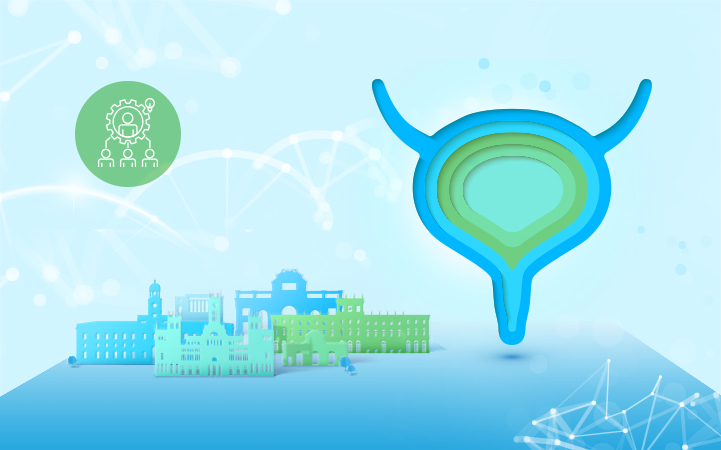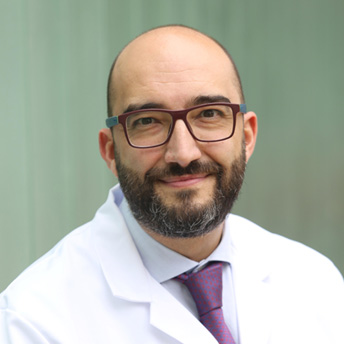
Expert Interview 3: Frequently Asked Questions (FAQs) for First-Line (1L) Treatment Decision-making in Urothelial Cancer
Release date: 20-11-2023
Expiration date: 20-11-2024
Platinum-based chemotherapy (CT) has been the preferred treatment for patients with unresectable locally advanced and/or metastatic (LA/m) urothelial cancer (UC) for several decades. With the evolving development of immunotherapy in the first-line (1L) setting, the standard management approach for LA/m UC consisted of cisplatin-based CT in cisplatin eligible patients or carboplatin-based CT in cisplatin ineligible patients followed by maintenance avelumab (an anti-PD-L1 inhibitor) in those who do not have disease progression with 1L platinum-based CT.
However, with the release of EV-302 and CheckMate-901 data during ESMO 2023, the landscape of 1L treatment becomes more competitive and complex. How can we access the new data? How can we strike a balance between efficacy and toxicity? How can we optimize decision-making regarding 1L treatment for both cisplatin-eligible and ineligible patients?
Let's watch the recorded video on 'Frequently Asked Questions (FAQs) for 1L Treatment Decision-making' to gain comprehensive insights from leading expert – Dr. Enrique Grande from MD Anderson Cancer Center Madrid.
This program is available with subtitles in the following languages:

Faculty

Enrique Grande, MD, MSc, PhD | Chair
MD Anderson Cancer Center Madrid
Madrid, Spain
Enrique Grande is the current Director of the Medical Oncology Program at the MD Anderson Cancer Center Madrid. Dr. Grande is focused on the research into genitourinary tumors and is actively involved in collaborating on the development of the Translational Research and Early Drug Development Unit. Dr. Grande was awarded his PhD for a pharmacokinetic and pharmacodynamic study of tyrosine kinase inhibitors in liver metabolism, and he holds a master’s degree in the molecular biology of cancer from the Spanish National Cancer Research Center (CNIO). A published author of more than 200 manuscripts in peer-reviewed journals, Dr. Grande is also the founder of the Spanish group for research on orphan and uncommon tumors (GETHI). Dr. Grande is the editor of several international journals and has been the editor of a range of books related to oncology. Dr. Grande has participated in the most recent trials in the field of genitourinary and neuroendocrine tumors that led to the approval of the new drugs we now have available.
This activity is design designed for medical oncologists and urologists involved or interested in the management of urothelial cancer.
The aim of this educational activity is for participants to:
- Establish confidence and expertise in the selection of platinum-based chemotherapy or immunotherapy throughout defining the criteria of cisplatin eligible, carboplatin eligible and platinum ineligible in 1L of LA/m UC
- Transfer knowledge into practice and utilize maintenance immunotherapy in the most optimum way after induction chemotherapy in first-line setting to extend outcomes for patients
- Improve understanding of the up-to-date clinical trials in urothelial cancer and apply the new data into clinical practice
- Optimize the 1L treatment decision-making through considering multiple clinical factors such as patient profiles, efficacy and toxicity of 1L treatment regimens, sequential treatment options, treatment accessibility and affordability
This educational activity is provided by ACE Oncology.
This educational activity is supported by an independent grant from the Healthcare business of Merck KGaA, Darmstadt, Germany.
This activity provides content that is evidence-based, balanced, and free of commercial bias, with a primary objective to improve competence and performance of learners in order to improve patient care.
The faculty reported the following financial relationships or relationships to products or devices they or their spouses/life partners have with commercial interest related to the content of this activity:
Enrique Grande has received honoraria for speaker engagements, advisory roles or funding for continuing medical education from Advanced Accelerator Applications, AMGEN, Angelini, Astellas, Astra Zeneca, Bayer, Blueprint, Bristol Myers Squibb, Caris Life Sciences, Celgene, Clovis-Oncology, Dr. Reddy’s, Eisai, Esteve, Eusa Pharma, Genetracer, GSK, Guardant Health, HRAPharma, IPSEN, ITM-Radiopharma, Janssen, Lexicon, Lilly, Merck KGaA, MSD, Nanostring Technologies, Natera, Novartis, ONCODNA (Biosequence), Palex, Pharmamar, Pierre Fabre, Pfizer, Raffo, Roche, Sanofi-Genzyme, Servier, Taiho, Tecnofarma, Thermo Fisher Scientific and Zodiac. He has also received grants for clinical research from Astellas, Astra Zeneca, IPSEN, Lexicon, Merck KGaA, MTEM/Threshold/Tersera, Nanostring Technologies, Pfizer and Roche. He has agreed to disclose any unlabeled/unapproved uses of drugs or products referenced in his presentation.
The employees of ACE Oncology have disclosed no relevant financial relationships.
ACE Oncology requires instructors, planners, managers, and other individuals who are in a position to control the content of this activity to disclose any real or apparent conflict of interest (COI) they may have as related to the content of this activity. All identified COIs are thoroughly vetted and resolved according to ACE Oncology’s policy. ACE Oncology is committed to providing its learners with high-quality activities and related materials that promote improvements or quality in healthcare and not a specific proprietary business interest of a commercial entity.
